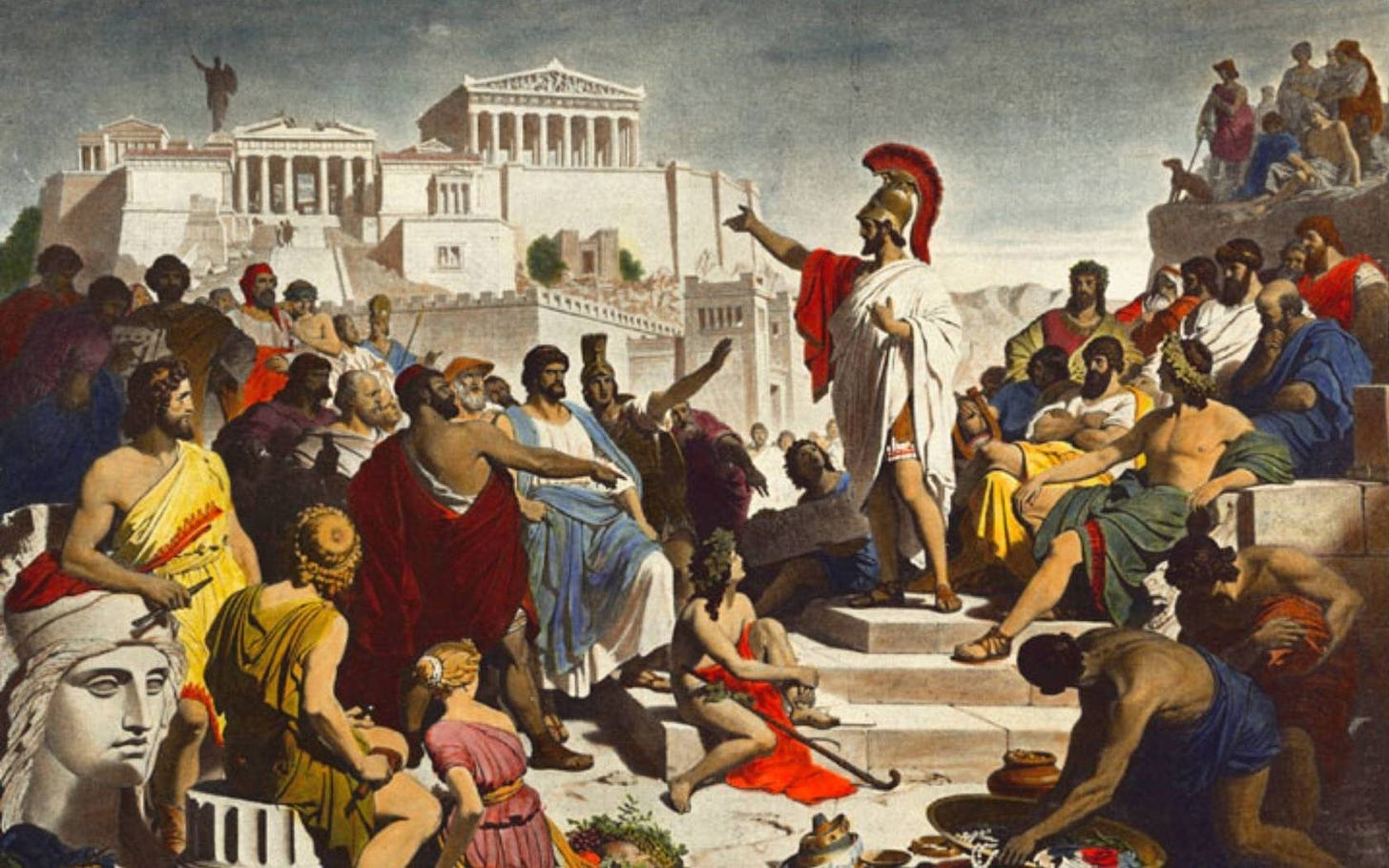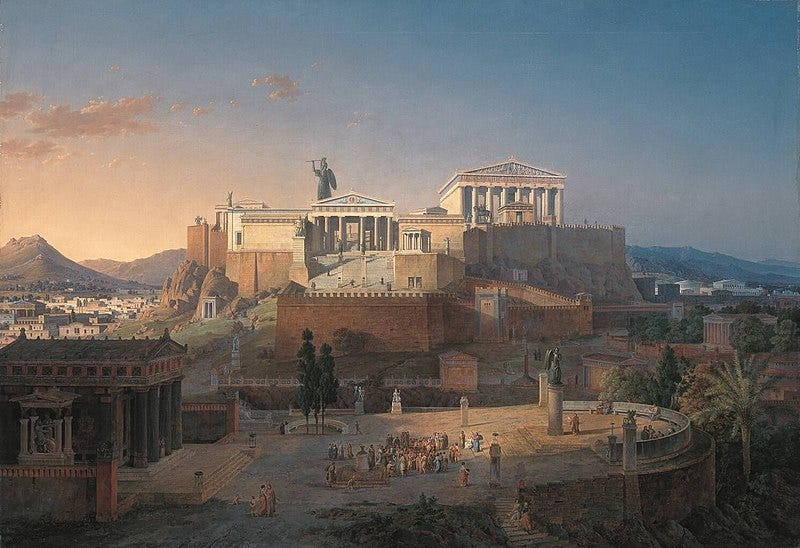Oresteia 3.8: the cultivation of Athenian patriotism
Summary 16 # Man, God, and Society in Western Literature - From Gods to God and Back
The Furies are enraged by this ruling and threaten to completely disrupt culture:
"Oh, younger gods,
you have drilled into ancient laws,
torn them from my hands.
But if I, wretchedly
robbed of my honor,
unleash upon this earth, oh woe,
with dangerous wrath
the poison, the poison of my heart
that will avenge my sorrow,
drops that this ground cannot bear,
then scabs will spread,
barren, leafless, childless,
through the fields—
oh help us, goddess of justice—
spreading deadly sicknesses
across the land.
I groan. What to do?
they laugh at me, unbearably,
for what has befallen me before these people.
Oh, deeply unhappy daughters of the Night,
miserably robbed of your honor."
But Athena tries to calm them by offering them a new position in Athens:
"I offer you the chance to choose the following:
for good services, well rewarded and honored,
to share in this city, beloved by the gods."
The Furies, curious, respond:
"Suppose I say yes:
what honor awaits me then?"
Athena then describes their promising future:
"With something befitting a victory
without any harm, something from earth
and sea dew and sky,
so that the wind's breath
will go over the land like a sunny breeze.
That the fruits of the land and animals
will flow for the people in abundance,
year in, year out, in an unending stream,
and that human life will flourish."
Athena does not hide her own deep love for Athens when she says:
"For like a gardener who cares for their plants,
I cherish these people,
a just people, spared from suffering (…)
I myself will not tolerate,
in glorious battles,
that my city is not honored as victorious."
Thucydides was a Greek historian who, a generation after Aeschylus, wrote about the Peloponnesian War between Athens and Sparta, from 460–400 BCE.
He recounts a speech by the Athenian general Pericles about why it is worthy to die for Athens:
"We have forced every sea and land
to be the highway of our daring,
and everywhere, whether for evil or for good,
have left imperishable monuments behind us.
Such is the Athens
for which these men,
in the assertion of their resolve not to lose her,
nobly fought and died;
and well may every one of their survivors
be ready to suffer in her cause."
He points to the "imperishable monuments" that Athenian culture has left behind, such as the work Oresteia. People still go to the Acropolis, to the remains of the Parthenon. Many sciences find their origins in Athens, as does the field of history with Thucydides.
To this Athenian greatness, the Furies may now contribute. This is Athena's offer, on the condition that they become a source of fertility rather than destruction. The Furies accept this role:
"May the tree-destroying plague
not blow. I name you my thanks.
May the fire that strips plants
of their buds not pass
the land’s boundary.
May sad, barren sickness
not besiege the land.
May the earth nurture strong sheep
with twin lambs in due time.
May the children of rich soil
honor the happy gift
of divine blessing."
Athena is pleased that her powers of persuasion have worked once more:
"I am glad that the eyes of Persuasion
watched over my tongue and my mouth
as I faced their furious refusal.
Zeus, the god of speech, proved stronger.
Our pursuit of good shall win forever."
The Furies now become the "kindly ones," the "Eumenides." Thus ends the feud of family clans against each other. For, as Athena says:
"Let [the citizens of Athens] share in each other’s joy
in a spirit of love."
Is there no room left for hatred and revenge? Indeed, there is. She continues:
"and be united in their hatred."
Hatred and vengeance remain, but no longer directed between Athenian citizens; instead, it is aimed outward, against external enemies. This is also the story that Thucydides tells: Athens, seeking ever more wealth as part of her empire. This endures until they are fighting on too many fronts and ultimately succumb.
Where hatred is channeled outward, it is the "spirit of love" that unites the citizens against decline. This is the creation of patriotism: love for Athens. Thus, Athens is placed above private and family interests. In this spirit, JFK said:
"Ask not what your country can do for you, but what you can do for your country."
This patriotism, love for Athens, is also seen in Pericles’ speech when he says:
"You must yourselves realize the power of Athens,
and feed your eyes upon her from day to day,
till love of her fills your hearts."






